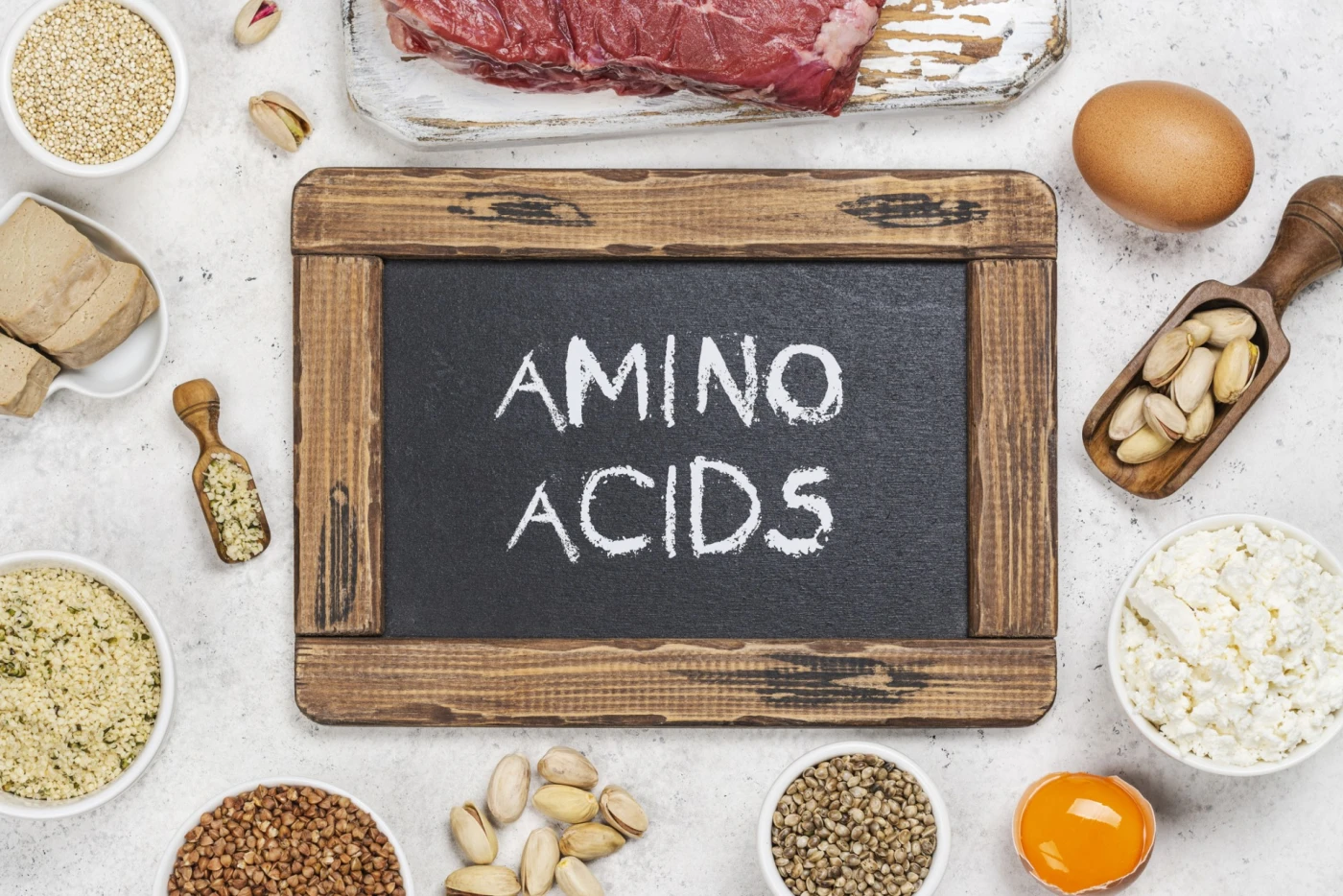Working hard to transport nutrients and bind tissues together, amino acids are the building blocks for protein and are crucial components of a healthy functioning body. Although amino acids are commonly added to sports and electrolyte drinks, they are more than that. They are vital for our bodies to support proper muscle growth, maintain tone and tissue strength, and they provide our bodies with the energy that we need every day.
What are Amino Acids?
As the building blocks of proteins within our bodies, amino acids aid in critical processes such as hormone synthesis and cell building. Researchers have grouped these amino acids into three categories based on how our bodies obtain them and what we need them for. These three groups are essential, nonessential, and conditional amino acids.
Essential Amino Acids
Out of the 20 different amino acids that our bodies need to function and grow, only nine of them are classified as essential. They are classified as essential because these amino acids cannot be made by your body – they must be obtained from your diet. These nine amino acids are histidine, isoleucine, leucine, lysine, methionine, phenylalanine, threonine, tryptophan, and valine, and can be found in animal proteins such as meat, poultry, and eggs, and some plant foods such as tofu and edamame.
Nonessential Amino Acids
Nonessential amino acids are produced by the body, but they can also be delivered by means of dietary sources and supplements. Nonessential amino acids support tissue growth and repair, immune function, red blood cell formation, and hormone synthesis. These include alanine, asparagine, aspartic acid, and glutamic acid.
Conditional Amino Acids
Conditional amino acids are nonessential amino acids that become essential in certain circumstances, such as illness or pregnancy. These amino acids, such as arginine, cysteine, glutamine, tyrosine, glycine, ornithine, proline, and serine, run low when you’re sick or injured.
Amino Acid Deficiency
Since essential amino acids cannot be produced by our bodies, we need to obtain and maintain them consistently through food and supplementation. Sometimes our diet doesn’t quite do the entirety of the job, and this may lead to amino acid deficiency. This deficiency can manifest itself in several ways, including a decrease in immunity, an increase in fatigue, digestive problems, fertility issues, depression, mental fog, and mental health issues.
If you believe that you may be amino acid-deficient, the most accurate diagnosis can be achieved through bloodwork. With a careful analysis of your blood, your health care provider can let you know whether your amino acid levels are balanced, or too low for optimal health.

